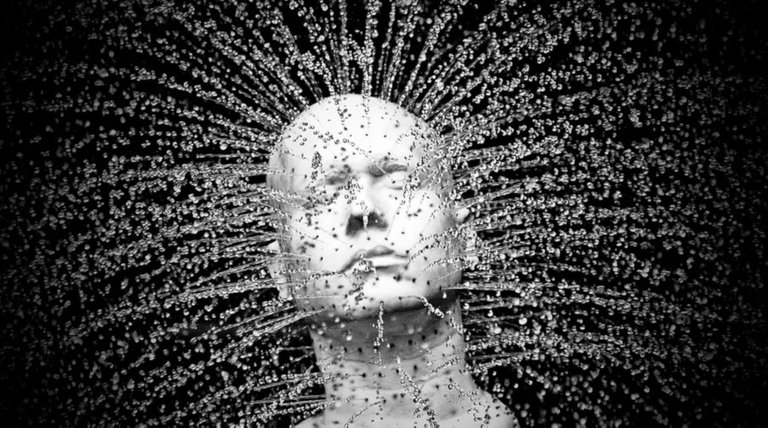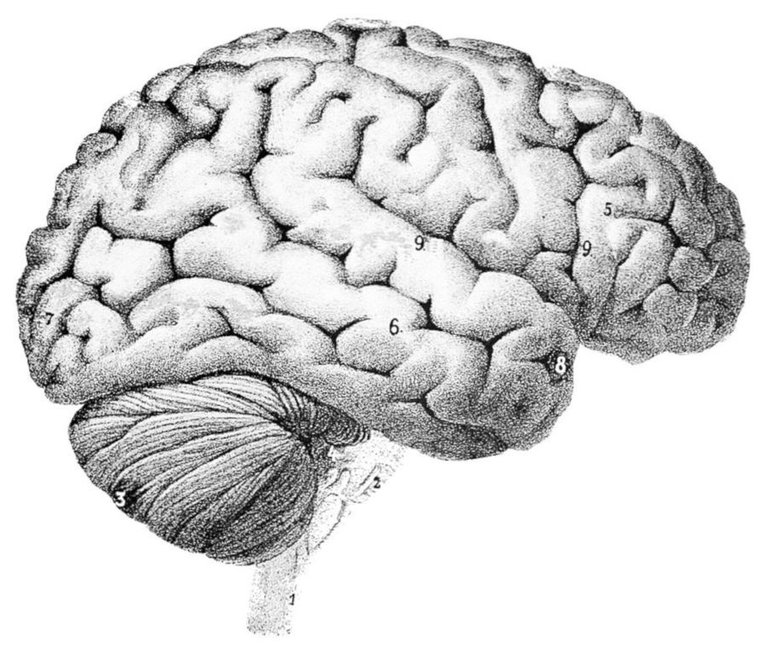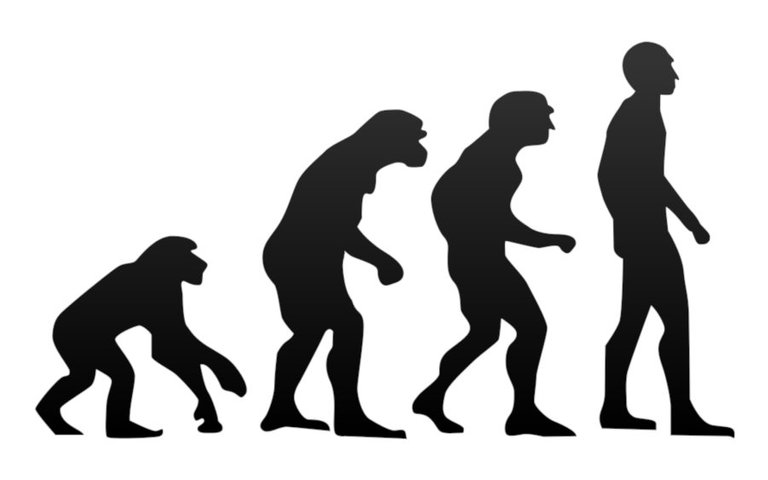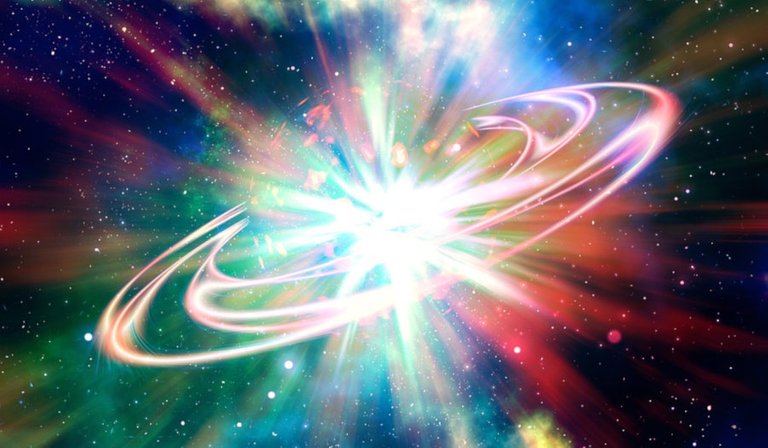Age Of Consciousness (repost)
What I want to focus on in this post is the question of the literal age of consciousness, how long it has existed, how old it is. The conclusion I've reached for myself is that this is question has no answer or meaning. Or that the answer is so unimaginable that it renders the question meaningless. I'd like to share with you the thought-process that has led me and many others to this seemingly meaningless yet highly enlightening end conclusion.

Image by Camilo Rueda López - source: Flickr
I was raised, like I believe most of my readers are, in a material world. Everything that's real can be described as time, space, energy and matter, as long as we understand the fundamental laws of nature that govern their interactions. Matter traversing time and space is all we are, is all everything is. The ancient Greeks already had the concept of an atom, as their philosophers reasoned that every substance can be divided in ever smaller parts, until you reach a point that it cannot be divided in even smaller parts anymore; the Greek word a-tomos literally translates to un-divisable or un-cuttable.
The fact that all things in the universe are made of other, smaller things has been known for a long time, but in the days of way back there was also a lot of room in our minds for the immaterial; for most of our known history we human beings assigned great importance for the spiritual, the religious, the immaterial. Our only "science" was philosophy, we listened to the thinkers, the ones with visions, the ones that were in touch with the spirits and the Gods. The first scientists as we know them now, were natural philosophers:
Modern meanings of the terms science and scientists date only to the 19th century. Before that, science was a synonym for knowledge or study, in keeping with its Latin origin. The term gained its modern meaning when experimental science and the scientific method became a specialized branch of study apart from natural philosophy. From the mid-19th century, when it became increasingly unusual for scientists to contribute to both physics and chemistry, "natural philosophy" came to mean just physics, and the word is still used in that sense in degree titles at the University of Oxford.
source: Wikipedia

source: Wikipedia
In our human voyage towards an ever better understanding of the reality we are part of, we've been zooming in more and more on particular things; there are no alchemists anymore as they've specialized into chemistry, biology, mathematics and physics. The philosophers and spiritual leaders of the olden days pondered on the whole of human experience, and they did so within the confines of their own minds. This holistic view on reality has necessarily been broken up into a gazillion different disciplines and specializations. And within each discipline we're looking for the fundamental explanations of that particular field, so they all formed their own paradigms; in biology it's DNA, genetic material, in studies of the mind it's the brain and neurons and in physics it's matter and energy for large scales and Quantum Mechanics for the smallest sub-atomic scales. Notice how each of life's important sciences has a purely materialistic basis. We call these the "hard" sciences for a reason.
This notion that everything can be explained through interactions between particles moving through time and space is relatively new, and it cannot be underestimated how much progress this way of thinking has brought us; in both evolutionary as well as cultural development the understanding of interactions with and in our material surroundings is indispensable. That's another reason why methodological naturalism is so attractive and why we so easily hold on to it. Progress meant gaining a better understanding of the material world which in turn demanded a better understanding of each aspect of that world, resulting in more and more specialization, all the time losing sight of the ancient holistic perspective on the universe through introspection.
The so called hard problem of consciousness is the problem of explaining how and why sentient organisms have experiences. This problem becomes evident when you realize that science is unable to draw a line on the evolutionary ladder to indicate where consciousness begins. We are conscious, that's all we know for sure, I know I'm conscious and I hope you are sure that you are conscious, dear reader. But is a cat, our favorite internet animal conscious? Most of us believe they are. Some people though, mistake "conscious" for "self-conscious", which is that we are conscious of being conscious. We can sort of step away from our inner experiences, reflect on them and conclude: "I'm conscious". We don't believe cats have that ability, they just experience. That's consciousness; the ability to experience, to have an inner, first person perspective on the universe around, comprised of whatever information the senses are able to provide.
Is a worm conscious? A bacterium? When and under what circumstances does matter give rise to consciousness? The same can be said about life: most scientists would grant that the bacterium is alive, but is a virus a living thing? It's an inanimate bundle of genetic material that needs another cell to actually do something, and some are even known to combine with dead cells to breathe life back into them... Where does life start? Hard science takes the easy way out and just uses the word "emergent". Somehow, when dead matter is combined in a particular complex manner, magically life happens. With the materialistic view on consciousness, science would have to draw a line somewhere, and explain why that tiny extra bit of complexity, those few neurons more would suddenly cause consciousness to emerge. It can't be done.

Maybe we should add a couple of billion years to this image.
source: Wikimedia Commons
Science takes place in consciousness and scientists agree that we don't experience reality as it is; our brain just creates a model that's conducive to our survival in that reality. And if evolution "decides" that hallucinating a tangible material universe is the best way for sentient life to survive, a hallucination is what we'll get. Modern science even shows that reality is miles away from what we experience. Atoms are mostly empty space. Quantum Mechanics shows that sub-atomic particles aren't particles at all; they exist in some superposition of possible states and only appear in a definite position after being observed, a phenomenon known as the collapse of the wave function.
And this is how our seemingly unstoppable march towards an ever more specialized and materialistic perspective on the universe, our search for the next smaller fundamental building block of reality, has brought us right back to considering the importance conscious experience. An observer implies consciousness and Quantum Mechanics, the most successful science for making predictions in the material world, doesn't work without it. At least that's how I understand it. And we could only get to this point because we're not just conscious, but conscious about being conscious. Without the "self" in self-conscious we wouldn't be able to even begin contemplating about classical mechanics, let alone quantum mechanics. We may be unable to explain where consciousness begins, but we can reason that humans are probably more conscious than worms. And cats are more conscious than snails. But self-consciousness is only found on the higher ends of the evolutionary ladder, the rest is "just" conscious, experiences their inner model of their world, forever caught in the "now", unable to reflect and driven by instincts and reflexes.
We are the greatest miracles in the universe, because in us matter is combined in such a way that it's able to reflect on its own existence. According to the hard sciences, cosmology and physics, the universe is approximately 13.7 billion years old and started with the famous Big Bang. Contrary to popular belief though, the Big Bang isn't the absolute beginning of the universe and science has no account for what came before. "Before" is a ridiculous notion when time and space didn't exist yet, some of them say. They just reasoned that because we observe an expanding universe, with all galaxies moving away from each other, everything must have started as a compact pin-point dot of immense mass and energy. The Big Bang is just the start of the expansion that was very violent, increasing the fledgling universe's size in exponential orders of magnitude in an infinitesimal short amount of time.
At the beginning there were no atoms, just sub-atomic particles. The first atoms that were formed are Hydrogen and Helium; the lightest atoms in the periodic table, and the universe was a dark place without stars. Under the influence of gravity, and the fact that particles were distributed slightly unevenly throughout the infant universe, these particles coalesced and eventually formed the first stars because these light atoms formed heavier atoms through nuclear fusion in their cores, caused by the pressure of their own weight; thus the first generation of stars illuminated the universe. These stars explode as supernova, releasing the heavier atoms from their cores into the universe, restarting the cycle. This is how each generation of stars was able to create heavier atoms with more electrons, protons and neutrons, eventually filling the periodic table to what we know now.

This explains why heavy metals are among the rarest minerals on Earth, but also in the universe. Gold is more difficult to find than carbon, simply because the stars that produced gold have existed for a lot shorter period than earlier generations that produced carbon. This also explains why hydrogen and helium are by far the most common elements seen in the known universe. Life as we know it is carbon based and that may give us a clue to when life as we know it could have begun to form in our universe. A fact I keep repeating to myself is that the human body consists of 70 to 75 percent water, if we count volume. But if we would count all molecules, than we are 99 percent water molecules, each containing two hydrogen and one oxygen atom. That's two miraculous realizations there; we're almost completely made up of the universe's oldest elements and we're literally made up of stardust. And how many times have you heard that life originates in water, that water is life?
All of the above has made me think that we are on top of an evolutionary ladder that begun at least 13.7 billion years ago. And that "life" and "consciousness" are two sides of the same medal, so to speak. Our search for the smallest fundamental building blocks of reality has led us to an understanding of the universe that doesn't work without a conscious observer. On the evolutionary ladder as well as in the hierarchy of living things we are unable to draw a line where consciousness starts or at what stage inanimate matter becomes living matter. And all the science that gives us these insights takes place within human self-consciousness. For me this is enough reasons to warrant consciousness a place among the most fundamental of elements. Instead of having consciousness emerge from complex material interactions, could it not be that the experience of a material universe emerges from consciousness?
Everything in 13.7 billion years of evolution has produced beings that have an inner experience of the universe, trying to understand it. With each contemplation about the conundrum of conscious experience I'm pushed ever further to the conclusion that consciousness is everything and everything is consciousness. It's not that matter becomes conscious when combined in a specific complex manner. The ability to experience has always been there and in sentient life the universe has created a multitude of perspectives on itself. In me and you and the worms that'll devour our physical bodies after death are points of consciousness with each their own perspective on the universe. Our perspective, our inner model is most certainly among the richest, most detailed and most understanding perspectives. We, dear reader, we are the universe trying to understand itself.
I hope science holds on to its newfound rediscovery of consciousness, that most immaterial of "things", and that we really are at the doorstep of an age of consciousness. What the actual age is, we may never know, but for me life and consciousness are essentially the same thing. The universe is a field of awareness from which everything emerges. Or at least, it could be. The mystery is part of the fun of being alive and able to think about life, the universe and everything. Or God, the universe, and everything else; that's the title of the below linked discussion from 1988 between Stephen Hawking, Arthur C. Clarke and Carl Sagan. Since science is always moving forward, not everything in the discussion has withstood the test of time of course, but it's interesting and enlightening nonetheless...
Carl Sagan, Stephen Hawking and Arthur C. Clarke - God, The Universe and Everything Else (1988)
Thanks so much for visiting my blog and reading my posts dear reader, I appreciate that a lot :-) If you like my content, please consider leaving a comment, upvote or resteem. I'll be back here tomorrow and sincerely hope you'll join me. Until then, stay safe, stay healthy!

Recent articles you might be interested in:
| Latest article >>>>>>>>>>> | Inventing Race |
|---|---|
| No Middle Class | Trickle-Up Economy |
| Obey | Collective Mind |
| Kidney Or Kids | Canada's Case For Crypto |

Thanks for stopping by and reading. If you really liked this content, if you disagree (or if you do agree), please leave a comment. Of course, upvotes, follows, resteems are all greatly appreciated, but nothing brings me and you more growth than sharing our ideas.